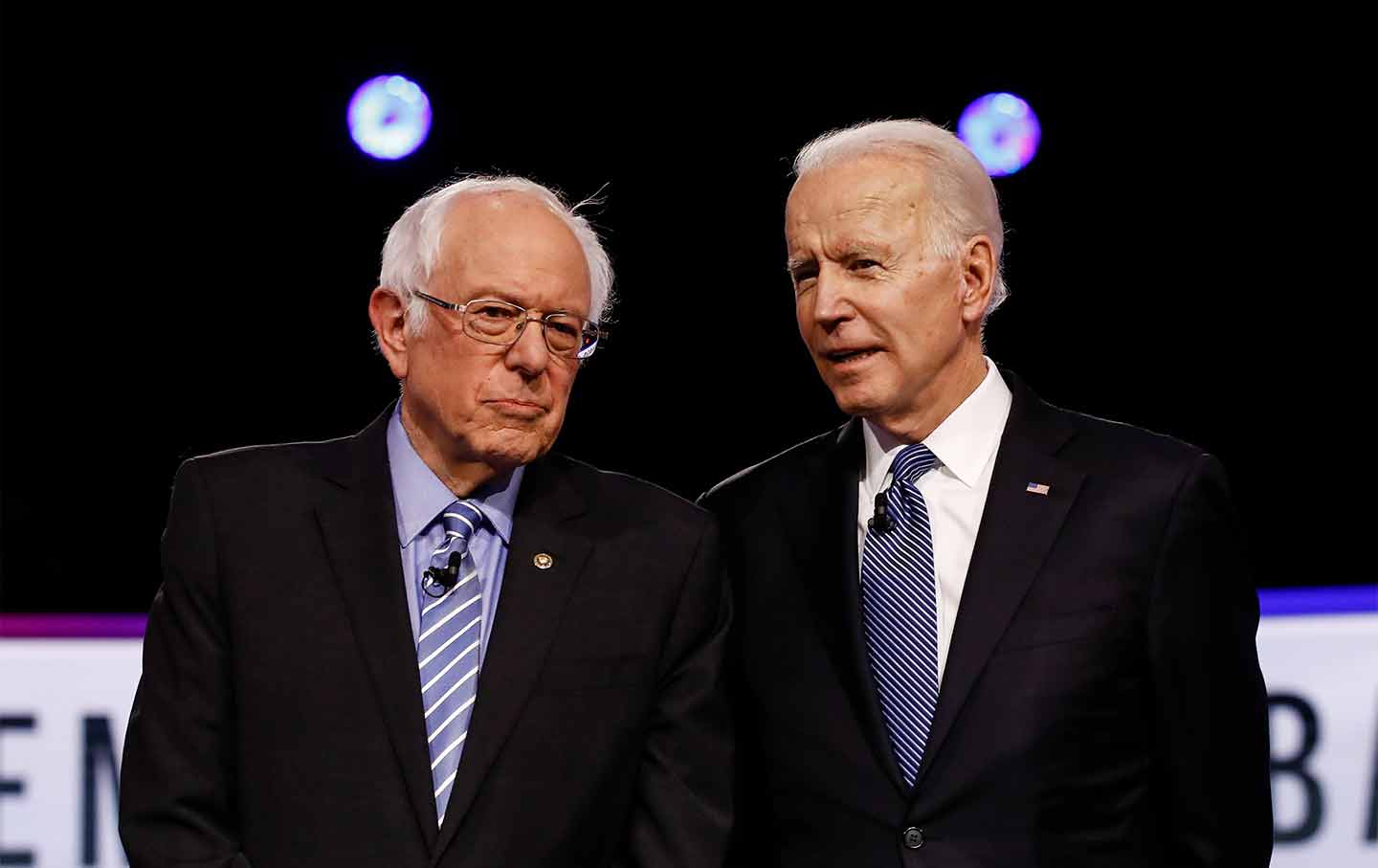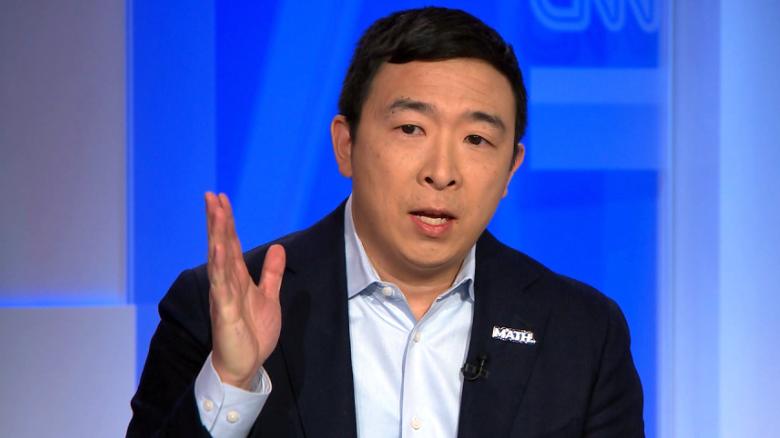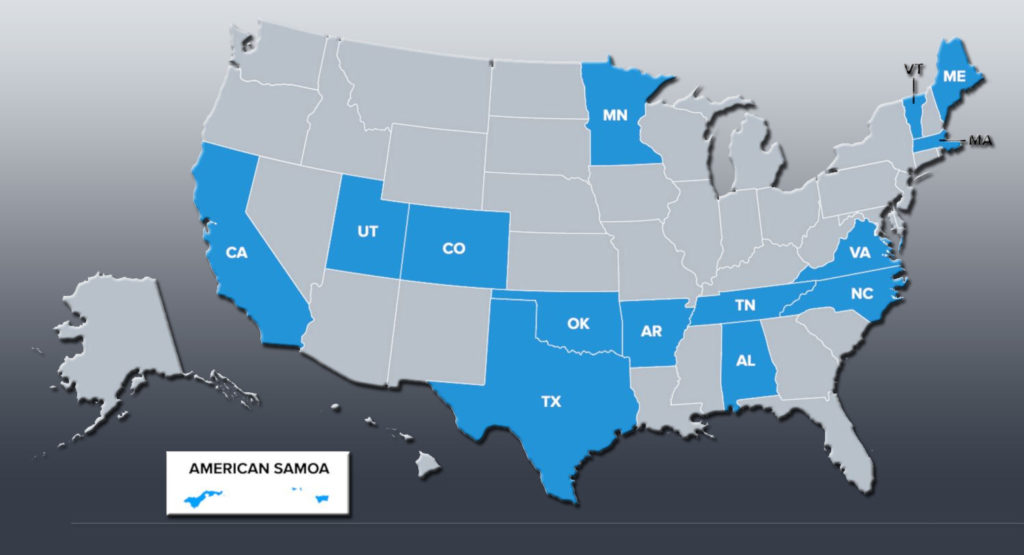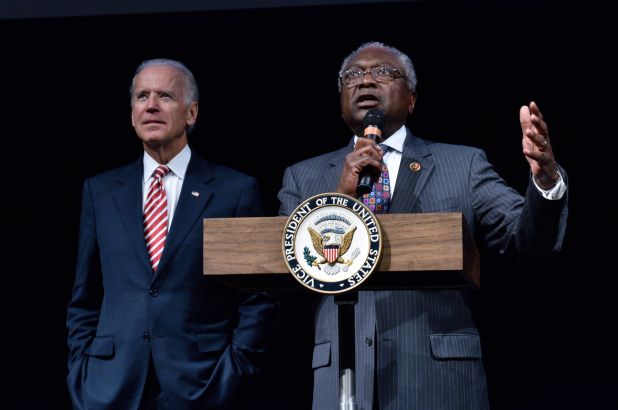Joe Biden: from unlikely candidate to Democratic front-runner. Here’s how

A few minutes every morning is all you need.
Stay up to date on the world's Headlines and Human Stories. It's fun, it's factual, it's fluff-free.
On Tuesday, March 10, former Vice President Joe Biden took a massive step towards securing the Democratic presidential nomination, claiming victory in the primary states of Michigan, Missouri, Mississippi and Idaho.
Biden’s four wins out of the six states that voted on Tuesday further extends his delegate lead over his only serious rival, Vermont Senator Bernie Sanders, who netted only North Dakota.
As of the time of writing, the primary in Washington State, Tuesday’s second biggest delegate prize, is still too close to call.
Regardless, Tuesday saw another dominant performance by Joe Biden, who greatly surpassed expectations on Super Tuesday last week when he won 10 of the 14 states up for grabs.
Biden’s sweeping wins these past two weeks mark a dramatic turnaround for a campaign that was widely reported to be dead just weeks before, after fourth and fifth place showings in Iowa and New Hampshire, as well as a distant second-place finish in Nevada.
The turning point was the South Carolina primary on February 29, where Biden trounced his closest competitor, Bernie Sanders, by double digits.
The driving force behind Biden’s victory there and his subsequent victories is an upswell of support from the African American community, as well as among moderates and older voters.
Following his victory in the South Carolina primary, Biden received endorsements from a swath of former and current elected officials, including former Democratic presidential candidates Kamala Harris, Cory Booker, Amy Klobachar, Michael Bloomberg, Pete Buttigieg and Andrew Yang.

On Monday, in a show of Democratic unity, Biden was joined onstage by Harris and Booker during a campaign stop in Detroit, as well as by Michigan Governor Gretchen Whitmer.
“There is one man now who is ready to go to the center of the arena, who is our best shot to beat Donald Trump,” Booker told the crowd.
“I believe in Joe. I believe in Joe,” Harris said. “I know Joe. And that’s why I’m supporting him.”
“Folks, look, we’re going to unite Democrats, Republicans, independents of every stripe. That’s what the nation needs. We’ve got to bring the country together,” Biden said.
Lack of resources
Only three weeks ago Biden’s campaign was reeling from poor showings in Iowa and New Hampshire, and going into Super Tuesday his campaign had fewer financial resources than any other candidate.
For the month of February, Bernie Sanders managed to raise US$46.5 million, compared to Biden’s US$18 million over the same period.
Biden had also not spent as much on advertising as the other candidates. His campaign’s spending on television and digital ads totaled just over US$600,000. Meanwhile, his television ads aired in only six of the 14 Super Tuesday states — Tennessee, North Carolina, Virginia, Texas, Alabama and
Arkansas.

By comparison, former New York City Mayor Michael Bloomberg, who dropped out of the race after Super Tuesday and went on to endorse Biden, spent US$200 million on ads in just the Super Tuesday states, while Sanders spent more than US$15 million.
Biden was also trailing the other candidates in organization, with some 500 staffers on the ground in Super Tuesday states, compared to 1,300 for Elizabeth Warren, 1,000 for Sanders and at least 950 for Bloomberg, according to NBC News.
However, after Biden’s Super Tuesday surge, his campaign saw a fresh injection of donors.
According to Reuters, Biden announced during a private campaign event on Friday that his campaign had raised around $22 million over a five day period.
The finance director for Barack Obama’s 2012 re-election campaign, Rufus Gifford, has reached out to more than 700 bundlers to convince them to back Biden’s candidacy, according to CNBC. “If you believe as I do that Vice President Joe Biden is our best (and perhaps last?) hope to defeat Donald Trump and recapture the soul of our nation, we need to ensure that the Biden Campaign is well funded,” Gifford said in the email to his network.
Winning the African American Vote
Despite its lack of resources and the fact that his campaign was on the ropes after falling behind in the polls after the Iowa and New Hampshire primaries, Biden was bullish about his chances of winning in South Carolina.
Biden had dismissed the Iowa and New Hampshire losses, saying that the two predominantly white states didn’t reflect the full diversity of the Democratic Party.
Speaking last month at the Democratic primary debate in Charleston, South Carolina, Biden said, “I’ve worked like the devil to earn the vote of the African American community. Not just here, but across the country.”
The next morning, Biden received the endorsement of the influential South Carolina Representative Jim Clyburn, the highest-ranking African American in Congress.
“I want the public to know that I am voting for Joe Biden. South Carolina should be voting for Joe Biden," Clyburn announced during a news conference in Charleston.

The former Vice President’s victory on Tuesday in Mississippi can also be attributed to support from African American voters, while his win in Michigan followed a similar trend as that seen in the Super Tuesday contests — strong support among African American voters in major cities and from white voters in the suburbs.
The Democratic establishment lashes out against Sanders
The coalescing of the Democratic establishment and moderate wing behind Biden comes at a time when Sanders had been building momentum.
There’d been anxiety among moderate Democrats who believe that Sanders, a self-proclaimed democratic socialist, is too far left to win against Donald Trump in November.
“Democrats want a nominee who is a Democrat,” Biden told supporters in Columbia, South Carolina. “Win big or lose, that’s the choice. Most Americans don’t want the promise of a revolution. They want more than promises, they want results.”
The other worry Democrats have is on the effect that Sanders’ nomination might have on down-ballot races, like those for the House and Senate, particularly for elections in swing states and districts.
Senator Bob Mendez of New Jersey told CNN, “I’m thinking of my home state in New Jersey, we got three new House members. They run in districts that were held by republicans. How do they triangulate ? How do they if someone like Senator Sanders is at the top of the ticket?”
In January of this year it was revealed that 2016 Democratic presidential nominee Hillary Clinton had said in a documentary that “nobody likes him”, referring to Senator Sanders. “He was in Congress for years. He had one senator support him. Nobody likes him, nobody wants to work with him, he got nothing done," Clinton said in the documentary.
Clinton also condemned Sanders’ leadership team as well as his online following, referring derisively to Sanders’ supporters as “Bernie Bros.”

“It’s not just him, it’s the culture around him. It’s his leadership team. It’s his prominent supporters. It’s his online Bernie Bros and their relentless attacks on lots of his competitors, particularly the women,” said Clinton.
[article_ad]
Have a tip or story? Get in touch with our reporters here!




Comments ()